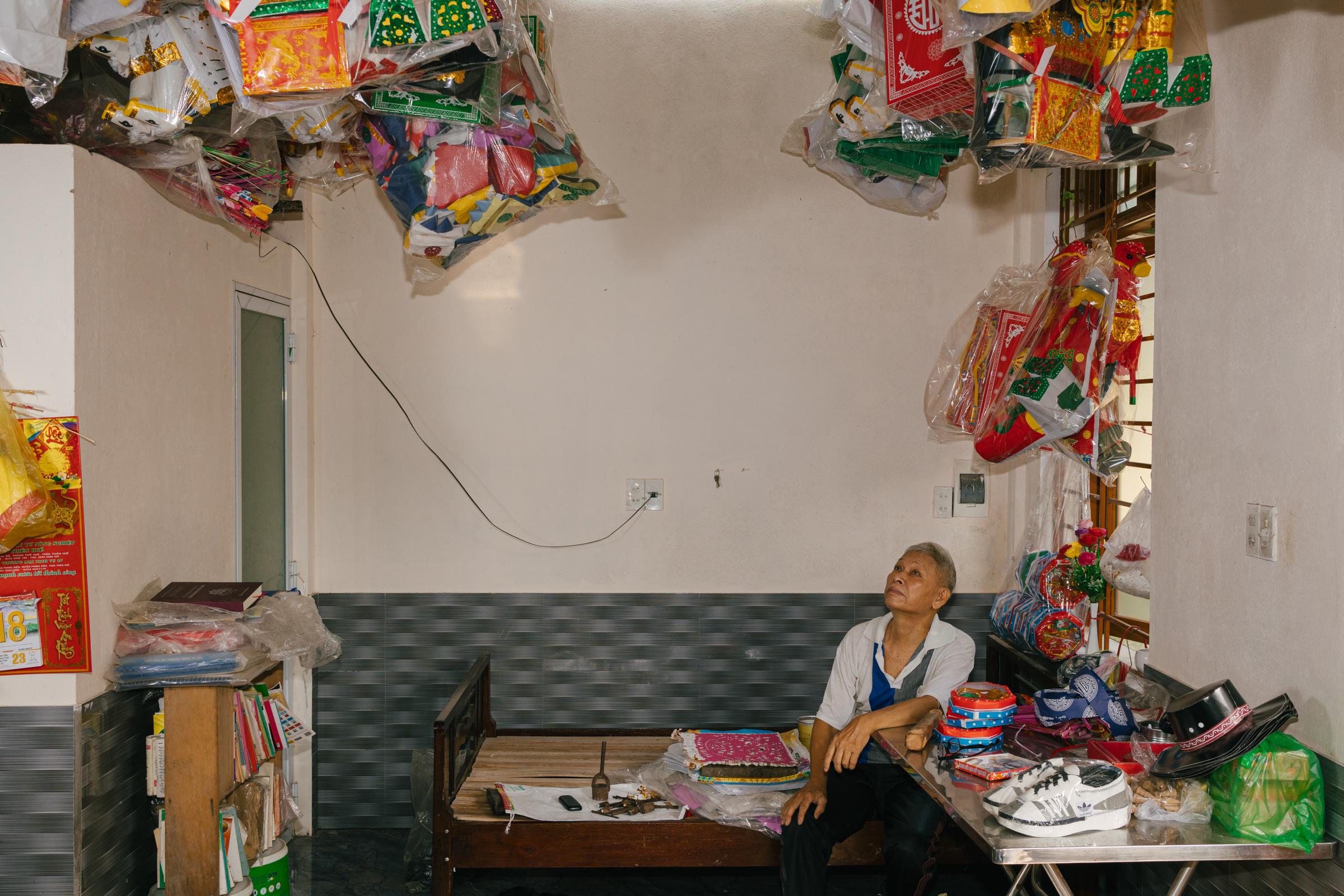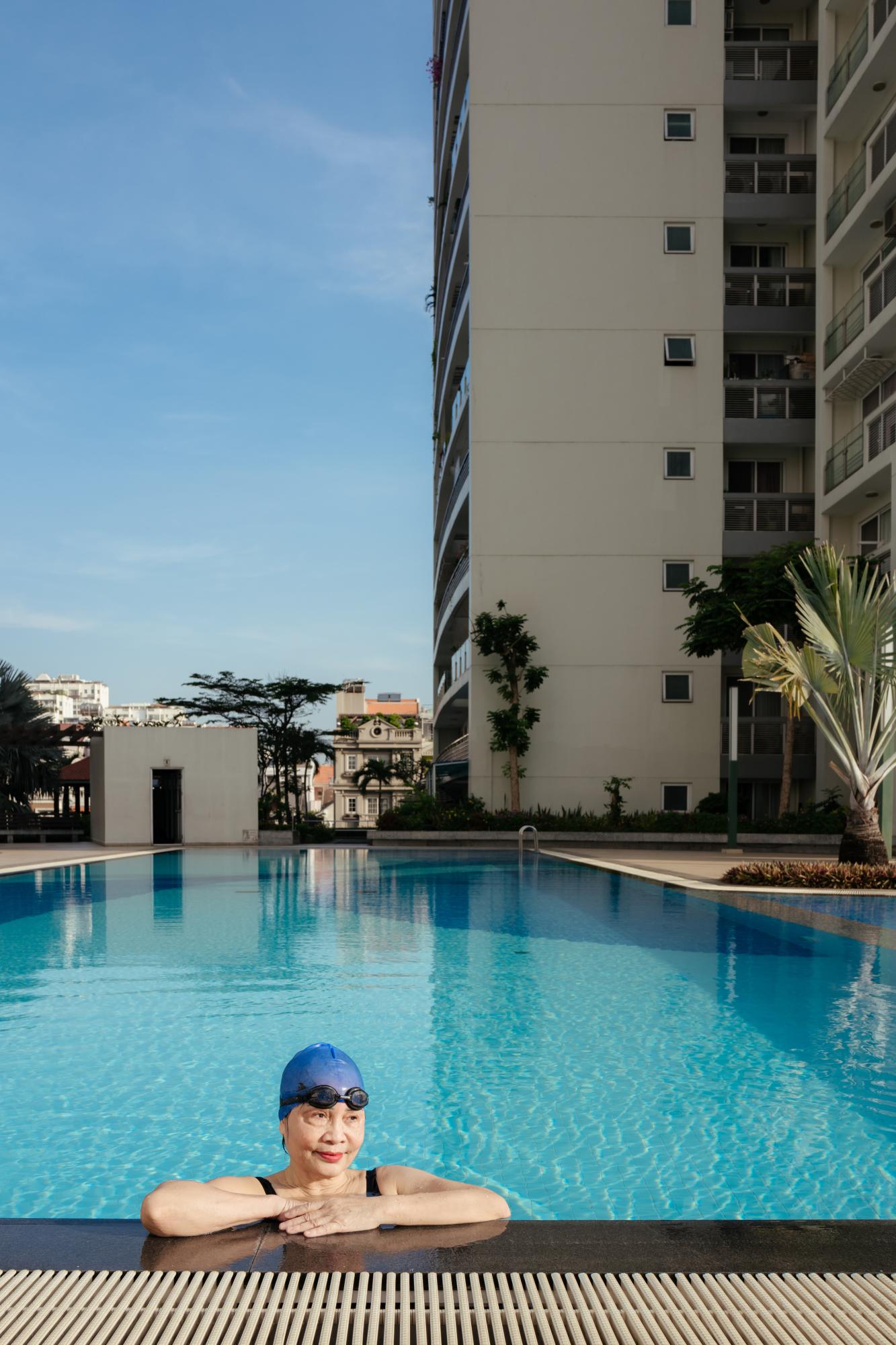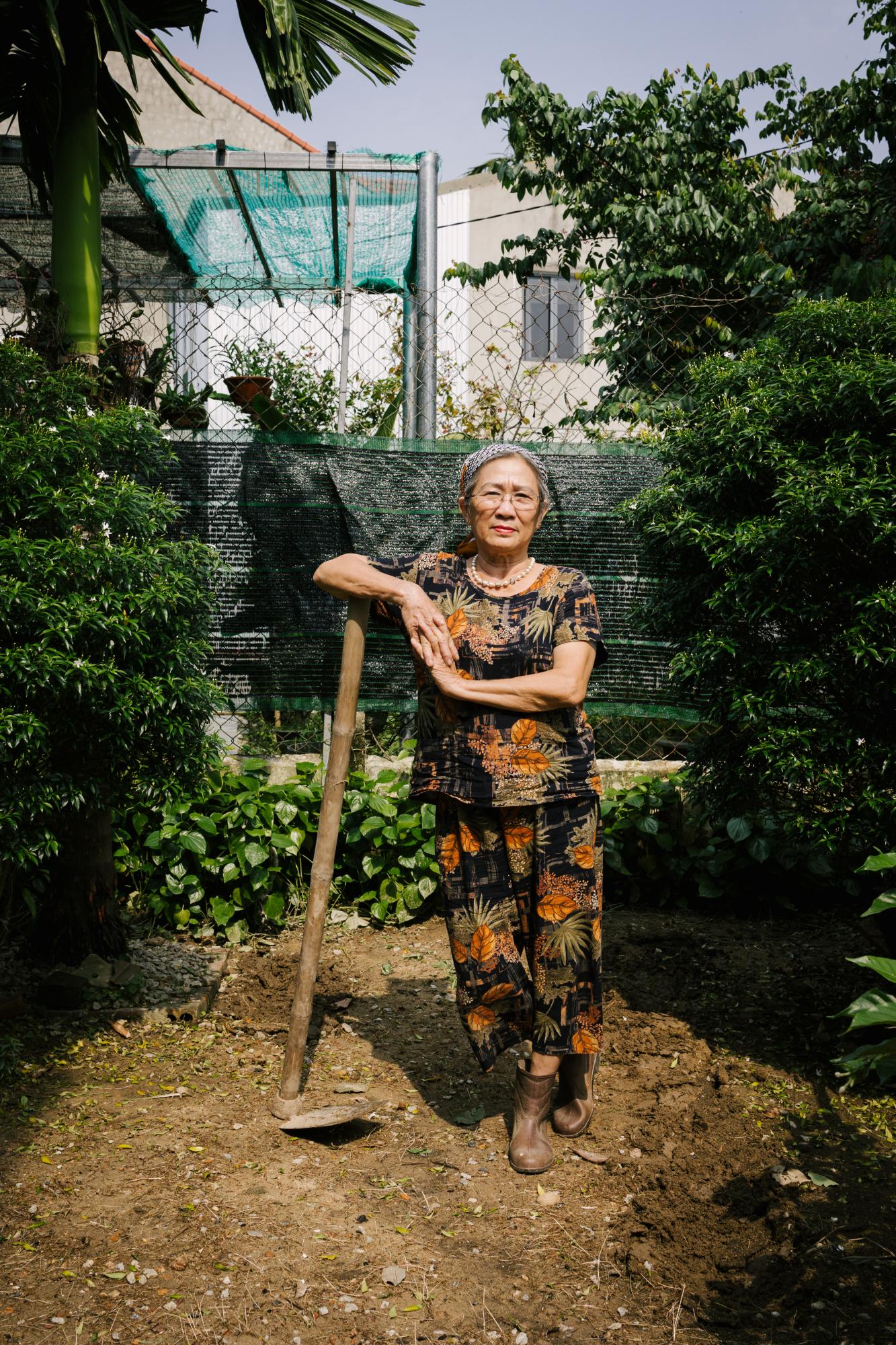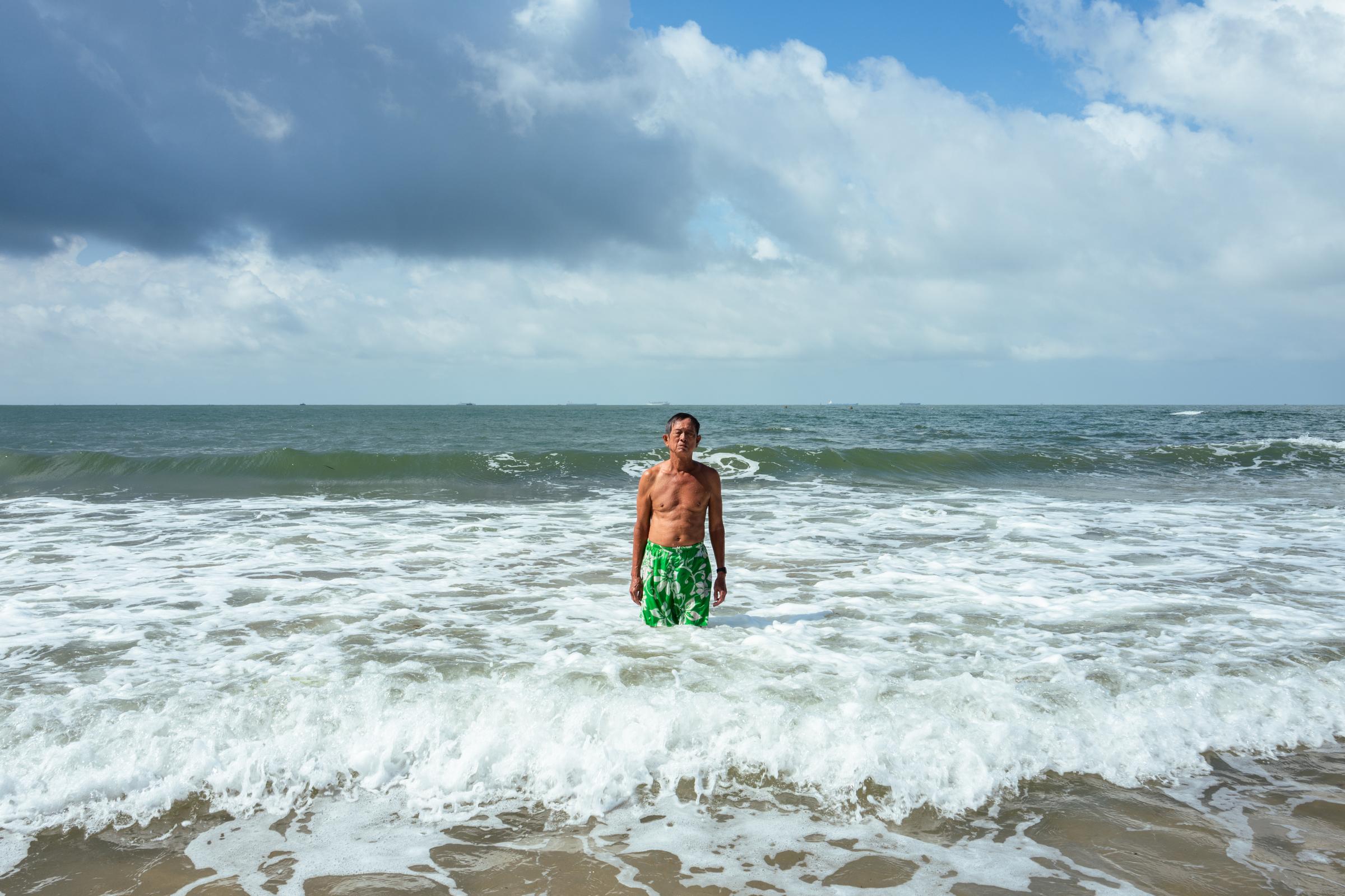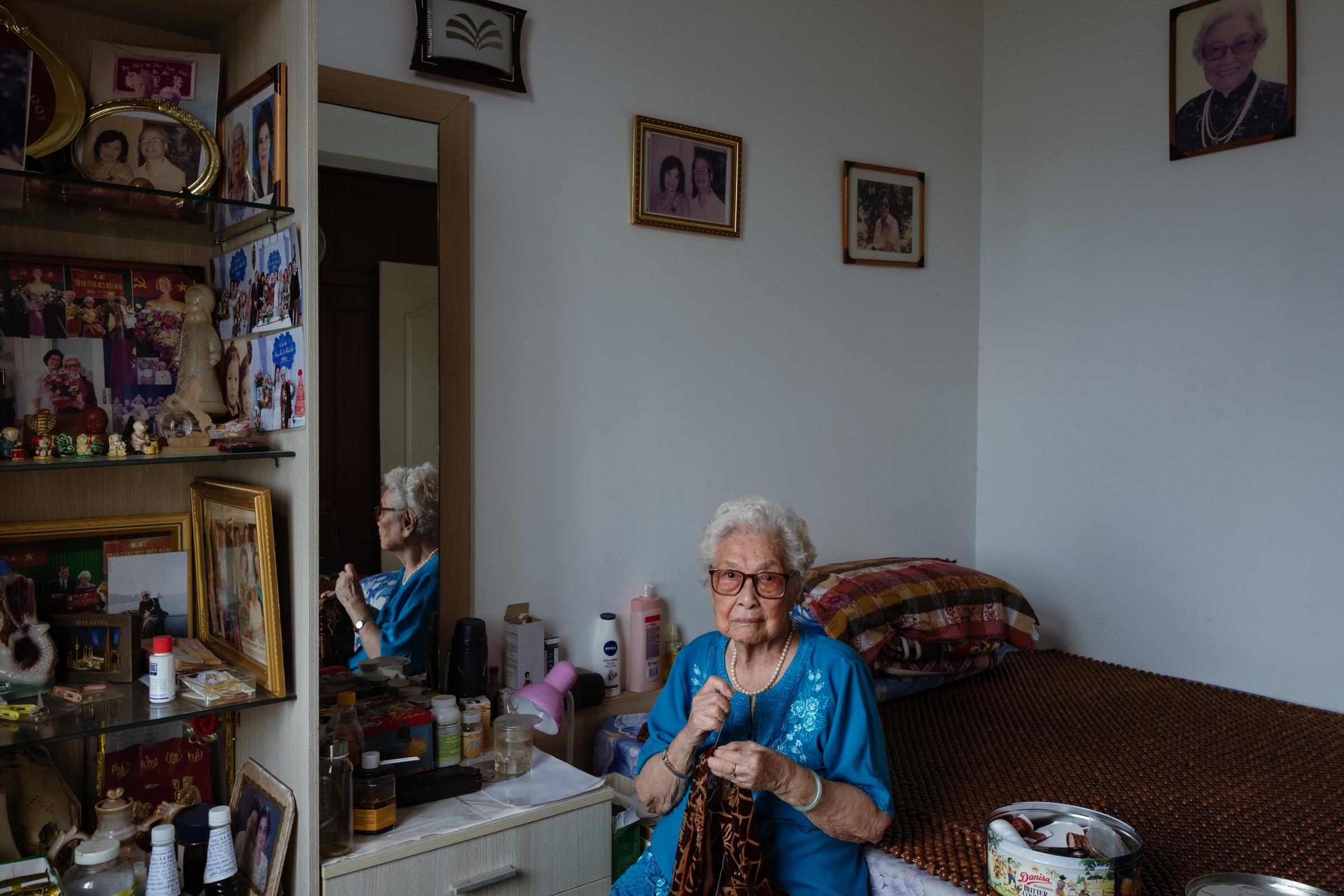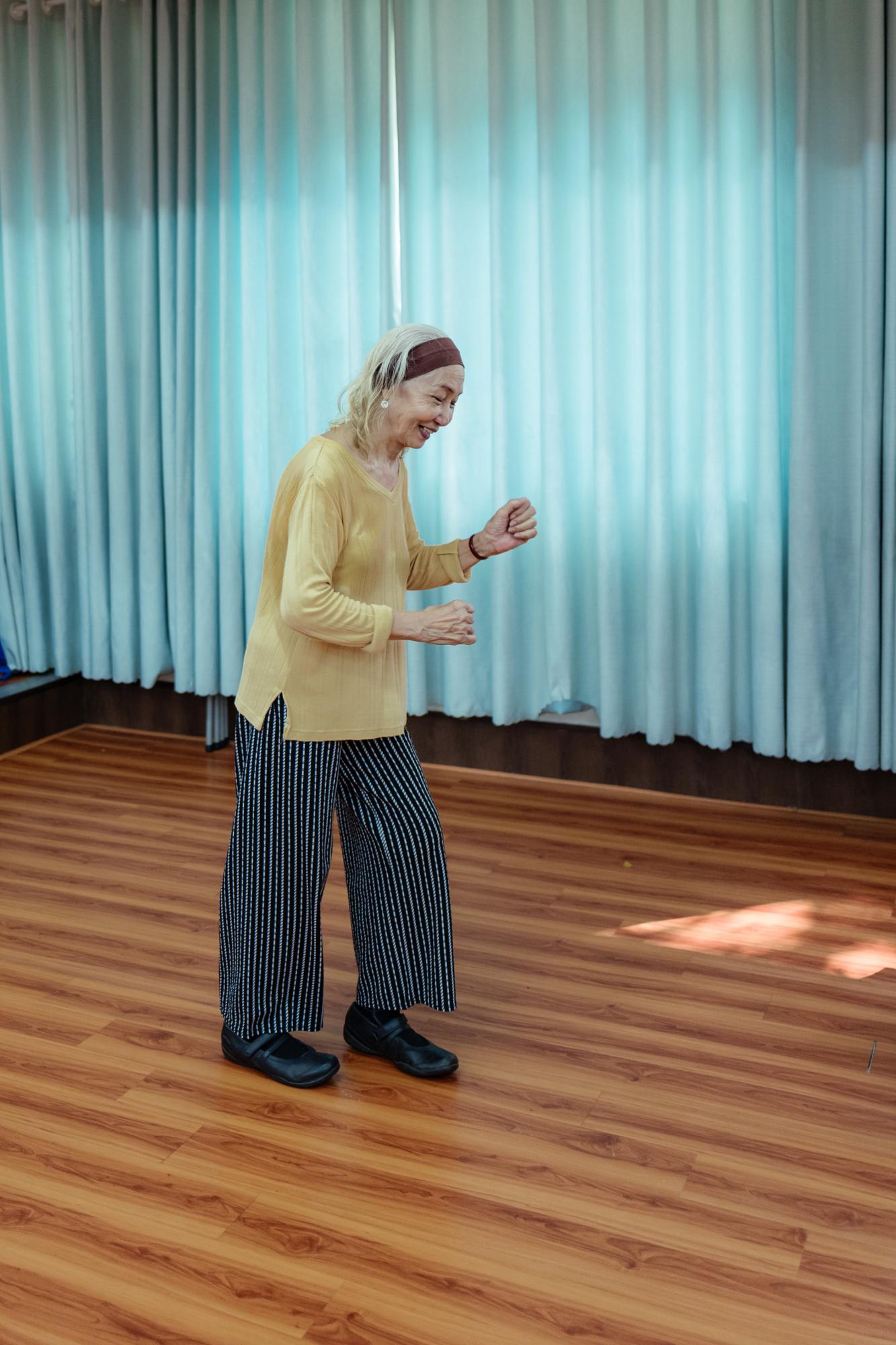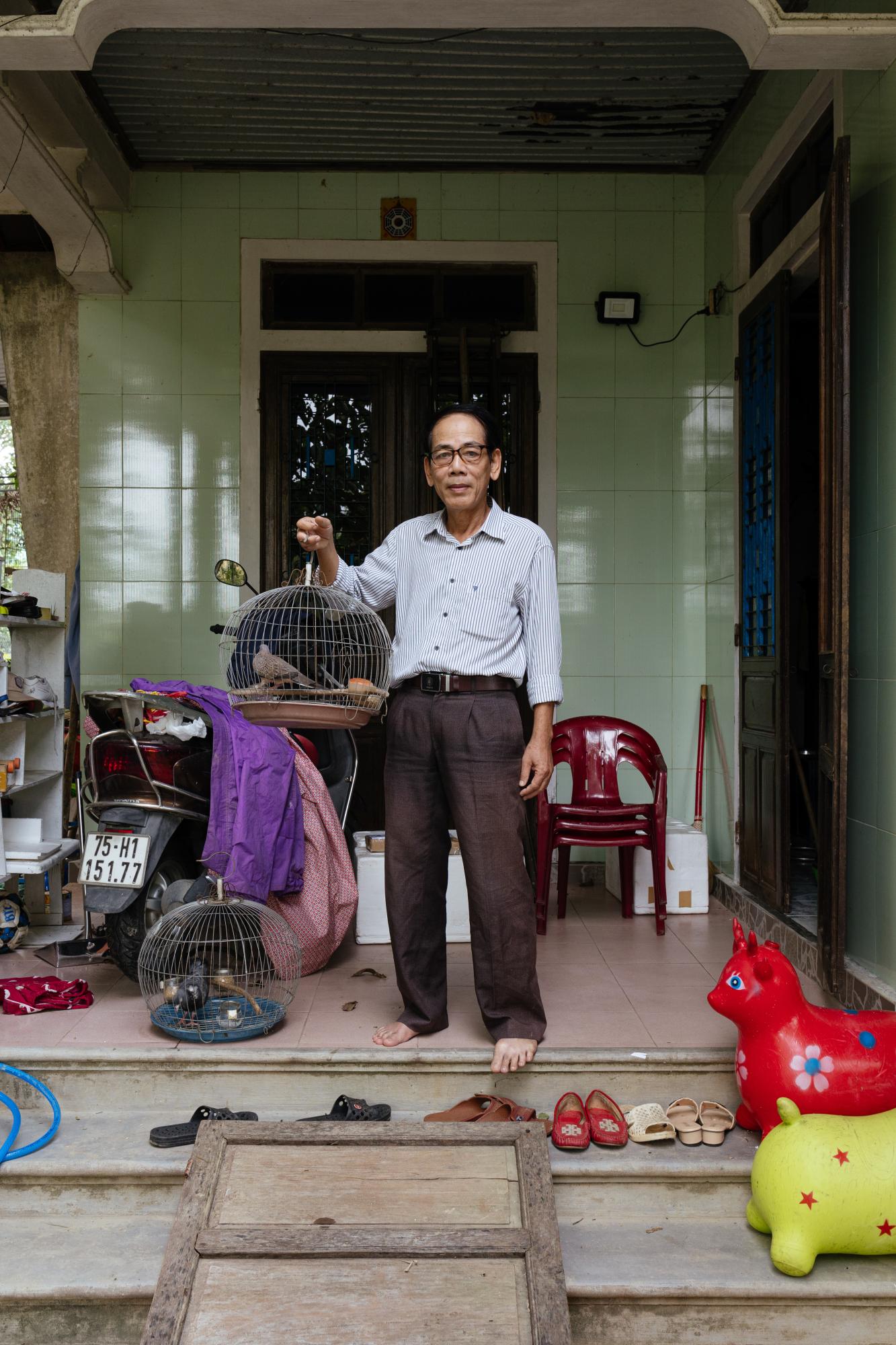In Conversation with photographer Thong Vo
Kisha Ravi for Visura Blog
Thong Vo is a Vietnamese documentary photographer from Ho Chi Minh City. Through his work, Thong explores topics that are mindfully important to him, such as family, self-awareness, relationships between people, and their geographical, cultural, and social ties.
In the year 2022, Thong worked on a portrait series of elderly Vietnamese people titled Time Dance. Developed over six months, the project addresses a subject matter rarely discussed in Vietnam's fast-paced society, where youth are more frequently portrayed. By photographing the subjects in their familiar living environments, Thong offers viewers a space to contemplate the routines, and activities that light up their lives.
I had the opportunity to connect with Thong to learn more about his work and vision. I was effortlessly drawn to the quiet moments that make his work. Even before we spoke over the phone, it was hard to ignore the personal, familiar feeling the photos brought. Thong Vo invites his audience to practice vulnerability in community.
This interview has been edited for clarity and brevity.
Thong Vo: My "aha" moment? I first owned a DSLR back in 2010. At the time, photography was just a hobby. I used to capture candid shots of my family during vacations or landscape photographs just to remember the trip.
The turning point came after the passing of my grandmother in 2014. As I reviewed my photo archives, I had only a few images of her during these last years, except for some traditional family portraits. I should have taken more photographs of Grandma. If I had, I would have a complete memory of her— the legacy, the precious moments, those little things that would have stayed with our family forever.In my favorite work, Picture from Home, Larry Sultan writes, "I realize that beyond the rolls of film and the few good photos, the demands of my project, and my confusion about its meaning, is the desire to take photography literally." I would follow photojournalism and documentary photography for the same reason—I would like to keep my parents alive forever. Through photographs, I hope to preserve the stories of people and things that matter so much to me. First and foremost, they are for me, but if they can impact others, then the photographs aim to fully resonate or impact people. In some way, I hope that my work can influence others. To change an old mindset, reinforce a belief, or offer a solution.
How would you describe or define your work in your own words?
Thong Vo: My work fluctuates between photo-reportage and documentary. On assignments for clients, I lean more on the photo-reportage approach. I come in, I observe, and I take photographs that truthfully depict what's happening. Besides personal projects, I also run my own photography business where I photograph weddings and other events. Both sides of the practice are built off of a similar creative process.
Before starting a personal photography project, I give myself space and time to think about what kind of story I want to tell. I tend to think deeper about how I want to approach the work. This results in projects that last for weeks or even months.
The general traits of my work are real-life inspired. The audience does not need to wrack their brains for hidden meanings. They can understand by simply reading the artist statement and viewing the photos. I do not manipulate or overuse any trick, even Photoshop.
Thong Vo: Great question! I think to keep a consistent perspective in the media outbloom nowadays, some of my remarkable works have a homogeneous theme. For example, Time Dance, Days after Her 100th, and Tet through My Mother's Hands, all share the theme of family. There are two other projects where I explore the theme of community. My personal projects are about self-experience and self-reflection.
I think the approach and the shooting style should only come after you have defined a universal theme for yourself, and more specifically, for each project you are working on. That's not to say that you must label yourself "a family photographer" or "a community photographer." Defining your themes is like having an anchor to your ship that helps you stay focused and not be saturated by millions of media producers out there.
How has the evolution of technology and social media impacted your work as a photojournalist?
Thong Vo: The quick spread of AI means it is easier than ever to transfer an idea into digital artwork, and social media helps magnify that impact. In recent years, we have seen cases where AI-generated photographs fooled even the eyes of professional judges.
Technology advancements are no harm as long as we respect the ethics of photojournalism. Machines cannot replace the heart and soul of human beings. As long as photojournalists commit to our values, technology is a helpful friend, not a threat.
Looking ahead, what trends or changes do you foresee in photojournalism, and how do you plan to adapt to them?
Thong Vo: If there is one thing I can forecast, I would say, user-generated content. Acquiring a camera-equipped device is affordable widely, and Wi-Fi and 5G also have a significantly large presence around the world. Anyone can be a photojournalist, and become semi-pro with a little bit of training. The role of photographers will be diminished. Alternatively, they would lean more on the photo editor role or curator to select, and deliver the right assets rather than the photographer having a more active role and agency.
What does the title of the project, 'Time Dance' mean?
Thong Vo: Time Dance refers to dancing through time. By dancing, I mean there's nothing too harsh or depressing. The seniors I met don't have a fear of missing out. They simply enjoy their time, just like a dancer on stage— exquisite, elegant, no rush, no worry, performing their best moves to the fullest, every second.
Why did you choose to document the lives of the elderly?
Thong Vo: I have a strong bond with senior folks. It's rooted in my childhood, living with and being taken care of by my late grandmother. I lived with her for nearly 25 years, so the intimate connection is well-established. Her death left me with regret. If only I had taken more photographs of her, I would have more things to remember about her. That's when I started developing Time Dance.
I want to see and feel the lives of the elderly because, in Vietnam, there's enough buzz around youth on social media. The most trivial thing done by a young celebrity can make it to the headlines and honestly, I'm fed up with that. I find that the lives of seniors fascinating, and colorful, and contain a vast range of emotions. They love, they hate, they worship, they have taboos, they work, and they take care of their offspring and their soulmates.
How do you hope this project impacts audiences?
I do not have any expectations. If anything, I would say, give your loved ones a tight hug, and a sincere kiss every day. Your parents, kids, spouses, grandparents. We don't know for sure when it's the last hello or the last goodbye, so let's open our souls to receive love.
If you were to have had the opportunity to show this work to your grandmother, what do you think she would say to you about the project?
Thong Vo: 'Give me another pose with the traditional Vietnamese Ao Dai, son.' That's what she would say to me, ha!
Thong Vo: I would say Pictures from Home by Larry Sultan. It's a great book, a memoir, a diary that beautifully combines pictures and words. Larry's writing is sincere yet sophisticated. Books by Alec Soth are awesome as well, he's my favorite.
Any career tips you can share for emerging storytellers?
Thong Vo: You need to find out what truly matters to you, look inside yourself, and research the things that matter to you. That's the basic premise. It takes practice, discipline, and patience to go far. In addition, you should find a balance between earning a living and working as an artist and storyteller. Sometimes, we produce things for which we are proud, but they don't earn us money. Give yourself a break. Do not push too hard if things do not go well.
What are you working on these days? What's next for you?
Thong Vo: At the moment, I'm working on a few ideas. I hope to introduce the next project in 2024. We will see.
As a visual artist and documentary storyteller, what are some of the biggest challenges you face today?
Thong Vo: The biggest challenge is to find a story that has not been covered or to tell a story that has been covered differently. It requires a great deal of effort from the photojournalist, not just purely technical skills.
Secondly is adapting to the rapidly changing media landscape. This includes addressing issues like the decline of traditional media, the rise of digital platforms, and the impact of social media on news consumption. Everyone now has access to a smartphone and can become a media publisher, so visual artists must find and approach the right people to publish their works.
Do you have a routine that you lean on to grow as a creative?
Thong Vo: I have a background in communications and presently work as a content creator and photographer. I combine writing, reading, and photography as a means to nurture and foster creativity. In terms of photography, I read quite a lot of photobooks, do research on my favorite photographers, and attend workshops.

